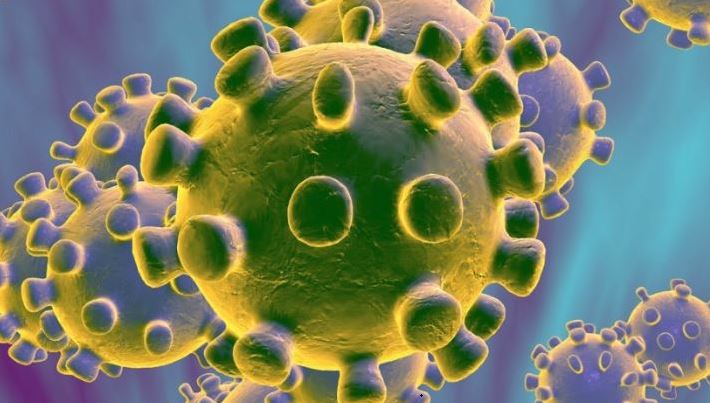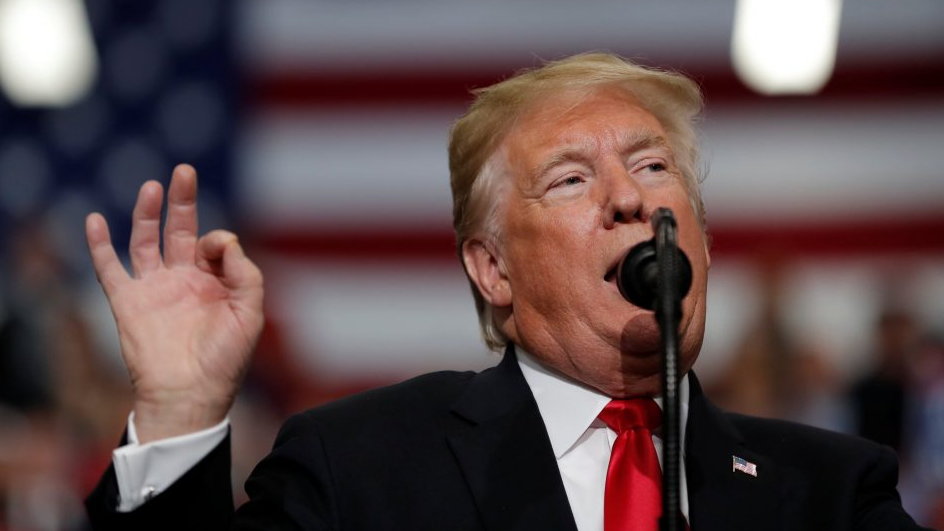
Editor's Note: Huo Zhengxin is a professor of law at the China University of Political Science and Law. The article reflects the author's opinions and not necessarily the views of CGTN.
As the world is in the middle of the battle against COVID-19, two class actions were filed against China for "damages suffered as the result of the coronavirus pandemic" before the U.S. District Court in Florida and Texas, shocking the Chinese legal community.
The American plaintiffs in these lawsuits alleged that the Chinese authorities knew that COVID-19 was dangerous and capable of causing a pandemic, and yet they slowly responded to the novel coronavirus by "proverbially putting their head in the sand," sparking the global COVID-19 outbreak.
They even go as far as alleging that the COVID-19 virus escaped from the Wuhan Institute of Virology, which they claimed was a biological weapons research lab run by the Chinese government. Therefore, they demand that Chinese authorities should pay damages to all American victims for their economic and non-economic damages, injury and loss related to the outbreak of COVID-19, an award in excess of 20 trillion U.S. dollars.
As a law professor, I usually do not comment on pending lawsuits out of respect for and trust in courts. Nonetheless, I cannot help making a quick response this time insofar as the present actions before the American courts threaten the dignity of law and defy the core values that the global legal community treasures.
First of all, the allegations against China in these lawsuits ignore common sense and distort the facts. As COVID-19 is a novel virus with many details remaining unknown, it takes time to truly understand the virus and be able to contain the spread of the disease. Therefore, when the first case of "a mysterious pneumonia" was discovered in Wuhan in December 2019, there was not enough knowledge and information to piece together an accurate picture of a yet-to-be-identified new virus, let alone to predict the risk of quick spreading and the later global pandemic. In fact, a retrospective examination suggests that Chinese authorities have responded with high efficiency which has effectively postponed the spread of COVID-19 to foreign countries.
Since January 3, the Chinese government has shared information on the virus with the U.S. government; by January 9, China Central Television reported a major discovery: A new virus, now known as 2019-nCoV.

The response failure of the Trump administration renders the blame game ineffective. /VCG Photo
The response failure of the Trump administration renders the blame game ineffective. /VCG Photo
On January 12, Chinese scientists shared the genetic sequence of the virus internationally, at unprecedented speed. On January 20, Chinese President Xi Jinping made his first public statement on the outbreak, demanding that all parts of the Chinese government "put people's lives and health first." On January 23, Chinese authorities locked down the city of Wuhan, which was a critical move to slow the spread of the virus to the rest of the world by two or three weeks. As of now, China is the only country in the whole world which has brought the COVID-19 pandemic under control.
Therefore, if these American plaintiffs complained about the outbreak of COVID-19 in the U.S. and attempted to seek damages, they should, in my opinion, sue against the American administration instead of the Chinese government. Even if the government of China hadn't responded to the virus quickly enough, as alleged by these Americans, the response failure of the U.S. renders the blame game ineffective. As to the allegation that COVID-19 is designed by China to be a very "effective" and catastrophic biological warfare weapon to kill mass populations, I have no interest at all in arguing against such an outlandish rumor.
Second, the lawsuits challenge the sovereignty of China and violate the principle of international law. The immunities of state and their property is a principle of international law based on the principle of sovereign equality of all states. Therefore, China, as a sovereign state, enjoys immunity from the jurisdiction of domestic American courts. As this is not the first time that China has been sued in U.S. courts, it is beyond doubt that the Chinese government will reiterate its position in case of need that it will not accept any suit against it by any person in a domestic foreign court.
Last, but not least, the lawsuits fail to be supported even by the domestic law of the U.S. Unlike China, the U.S. adopts the restrictive immunity approach. Pursuant to the Foreign Sovereign Immunities Act (FSIA) of 1976, which provides the sole basis for obtaining jurisdiction on an action against a foreign state, a foreign state shall not be immune from the jurisdiction of courts of the U.S. if the disputed state act relates to commercial activities or constitutes a tort.
However, the alleged act of the Chinese government does not meet either of the exceptions. First, what Chinese authorities have done so far relevant to COVID-19 are the acts of government, rather than acts of a commercial nature. Second, under §1605(a) of FSIA and the decisions of the U.S. Supreme Court, the tort exception covers only the situation where both tort action and damage occur in the U.S. As the alleged tort of the Chinese government was conducted exclusively in China, the tort exception should not be triggered.
Based on the above analysis, I conclude that the present class actions before the American courts are nothing but a farce in the name of law. As coronavirus knows no borders and does not care about nationalities, what the international community needs now is cooperation and support for each other. If all countries indeed unite, we can beat COVID-19, this invisible and common enemy. However, if some Americans continue to point fingers and play the blame game, we all lose.
(If you want to contribute and have specific expertise, please contact us at opinions@cgtn.com.)